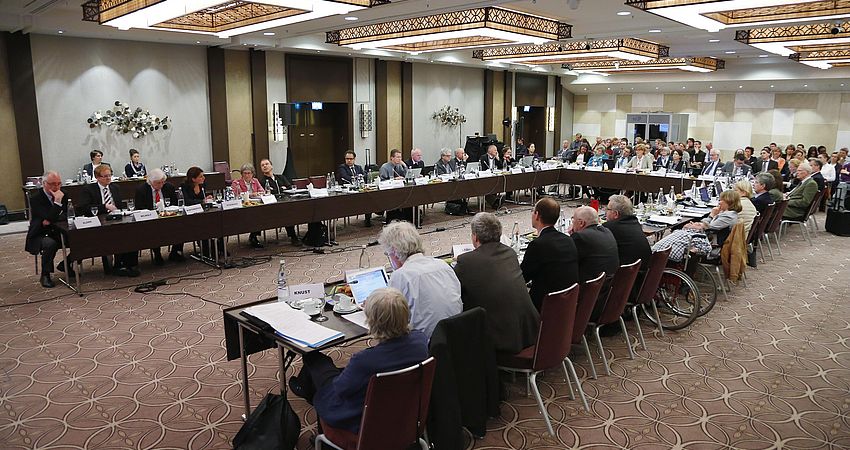Hearing
Biosecurity – Freedom and Responsibility of Research

Saalblick, Deutscher Ethikrat, Fotograf: Reiner Zensen
Topic
Last year, viruses modified in a research laboratory that made bird flu transmissible by air between mammals gave rise to a new debate on biosecurity. The central question is how to prevent the misuse of research results by bioterrorists.
Experiments on the ability of pathogens to mutate are considered important in preparing for new waves of infections, which are often caused by natural changes in viruses and bacteria increasing their potential for harm. However, there is also concern that knowledge about the process needed to make pathogens more dangerous for humans could be misused to produce bioweapons. Also beyond the field of infection biology, research results and technical developments in the life sciences can bear such a potential for misuse, if through them harm to the health of humans or livestock and crops becomes possible.
How should we deal with research that is intended to contribute to medical progress or other socially important goals, but at the same time could be misused by bioterrorists:
- Are voluntary codes of conduct sufficient to make researchers and those who decide on the funding of research projects and the publication of research results aware of the risks of misuse and how to minimise these risks?
- Under what circumstances might potentials for misuse justify a decision not to conduct or publish research, and who should make such decisions?
- What concrete mechanisms are in place to minimise risks of misuse, and how are they implemented? Are they appropriate and sufficiently communicated, and what possibilities are there for improvement?
Against this backdrop, the Federal Government has commissioned the German Ethics Council to prepare an Opinion on the topic of “Biosafety and freedom of research – research funding and the handling of research results”.
The Ethics Council intends to address the various aspects of the issue at a public hearing on 25 April 2013 engaging in discussion with representatives of the most important stakeholders and perspectives.
We cordially invite members of the public to attend this hearing as members of the audience.
